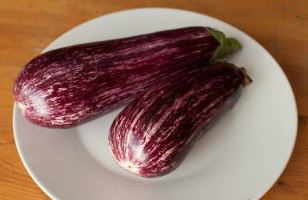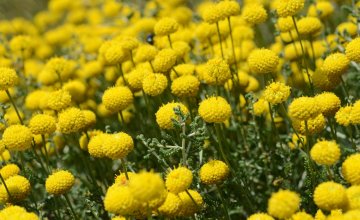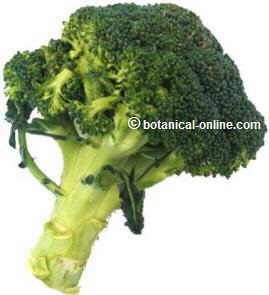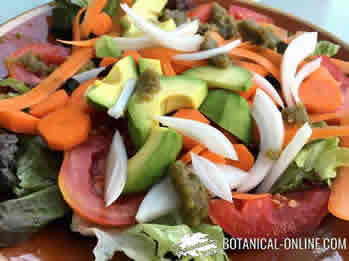Contents
Alternatives to eating meat
ALTERNATIVES TO ANIMAL MEAT
Is meat necessary?
For many years, many people have asked this question. Is it necessary to eat meat from animals in order to live and enjoy good health?
The answer to this question lies in the numerous societies or individuals that have vegetarianism as a way of life. Populations are known where their components never eat meat. In spite of this, these individuals enjoy very good health and a full and long life.
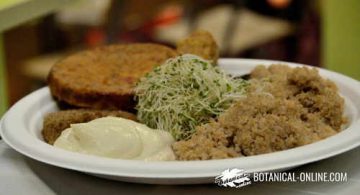 There is no doubt that meat is a very complete food from a nutritional point of view. It brings energy through fats; vitamins and minerals.
There is no doubt that meat is a very complete food from a nutritional point of view. It brings energy through fats; vitamins and minerals.
Vegetable foods can provide energy through high-quality vegetable fats and carbohydrates. Plant foods are very rich in vitamins and minerals. However meat advocates have always maintained that this food should be eaten because vegetables can not meet the protein people need.
Can you live without meat? Alternatives to meat
There are many foods of plant origin that can be considered as real alternatives to animal meat.
Among this type of food we have, as we have mentioned, vegetable meats. They are products made from vegetables that have the texture and their meat-like properties (More information on vegetable meat in the above list)
Vegetable meat is the most similar alternative to animal meat. However, it is not the only vegetable food we can eat to replace the meat. There are plant foods especially rich in proteins, among which we have the following:
– Legumes: It should be noted that legume proteins are of lower quality than animal protein because they lack amino acids tryptophan, cysteine and methionine.
However combining this food group with other foods like cereals, rich in missing amino acids, manages to provide very healthy proteins.
In addition, the combination between legumes and cereals allows the cereal to be added to the amino acid lysine, which is very abundant in legumes and quite deficient in cereals. Within legumes, soy is the food that contains a more balanced composition of amino acids. Lentils are also a very suitable source of protein.
Protein content of some legumes per 100 g | |
| Green beans | 1, 8 g |
| Dry white beans | 20 g |
| Dried red beans | 21 g |
| Dried adzuki beans | 21 g |
| Lentils | 23 g |
| Dried soy | 33 g |
| Fresh green peas | 21 g |
| Dried chickpeas | 21 g |
| Broad beans | 25 g |
– Cereals: Cereals are rich in protein. Proteins are found in the inner mass or endosperm and in the germ.
Among all cereals, due to its protein richness, rice, oats and wheat stand out.
Cereal proteins alone are not as complete as those in meat because they lack some essential amino acids, such as lysine.
However, cereals can be combined with other plant foods, such as legumes, to complement each other.
| Protein content of some cereals per 100 g | |
| Wheat | 13,6 g |
| Rice | 7,94 g |
| Oats | 7,10 g |
| Maize | 9,42 g |
| Millet | 11,02 g |
| Barley | 12,4 g |
| Quinoa | 13,10 g |
| Rye | 14,76 g |
| Triticale | 13,5 g |
– Nuts: They are very rich in protein, although lack some amino acids. They can be completed with the other groups.
| Protein content of some nuts per 100 g | |
| Walnuts | 13,6 g |
| Chestnuts | 3,7 g |
| Hazelnuts | 14,95 g |
| Almonds | 21,26 g |
| Pistachios | 20,61 g |
| Brazil nuts | 14,34 g |
| Macadamias | 7,91 g |
– Vegetables and fruits: Although very few, they also have proteins.
| Protein content of some fruits and vegetables per 100 g | |
| Apples | 0, 19 g |
| Oranges | 1,04 g |
| Peaches | 0,70 g |
| Cabbages | 1,44 g |
| Asparagus | 2,28 g |
| Carrots | 3 g |
| Potatoes | 2 g |
A good combination of vegetable foods containing cereals, legumes, vegetables, nuts and seeds can provide the right proteins without eating meat.
How is animal meat different from “vegetable meat”?
The main differences between both foods focus on proteins and fats.
Vegetable fats are healthier
Animal meat is very rich in saturated fats. Saturated fats are responsible for numerous cardiovascular problems, since they block the blood vessels and promote the appearance of numerous circulatory diseases. In addition, meat of animal origin contains a lot of cholesterol.
Fats from vegetable meat and vegetable foods are mostly unsaturated, so they make the blood more fluid and prevent vascular diseases. In addition, some of these fats, such as omega 3 or omega 6, may provide additional benefits such as anti-inflammatory properties, anticancer, skin health benefits, etc.
Thus, from the point of view of fats, vegetable meat and vegetable foods have more advantages and less disadvantages than animal meat.
Animal meat has higher quality proteins
With regard to proteins, animal meat has higher quality proteins than vegetable meat and foods of plant origin.
Proteins from meat of animal origin contain all amino acids.
Vegetable foods contain protein, although each plant food does not contain all the amino acids.
Within vegetable products, vegetable meat is made to contain all amino acids. Even so, animal flesh contains a greater amount, therefore it provides more protein.
| Composition of tempeh, soybean and beef per 100 gr. | |||
| Tempeh, cooked | Soy bean, seeds, cooked, unsalted | Lean beef with separate fat, unsalted | |
| Water | 59,56 g | 62,5 g | 58,9 g |
| Calories | 197 Kcal | 173 Kcal | 192 Kcal |
| Fat | 8,9 g | 8,9 g | 6,3 g |
| Protein | 11,38 g | 16,64 g | 31,5 g |
| Carbohydrates | 9,35 g | 9,9 g | 0 |
| Fiber | —- | 6 g | 0 |
| Potassium | 401 mg | 515 mg | 308 mg |
| Sodium | 14 mg | 1 mg | 51 mg |
| Phosphorus | 253 mg | 245 mg | 272 mg |
| Calcium | 96 mg | 102 mg | 5 mg |
| Magnesium | 77 mg | 86 mg | 25 mg |
| Manganese | 1,300 mg | 0,710 mg | 0,018 mg |
| Iron | 2,3 mg | 5,1 mg | 3, 46 mg |
| Zinc | 1,57 mg | 1,15 mg | 5, 4 mg |
| Copper | 0, 540 mg | 0, 40 mg | 0,13 mg |
| Vitamin C | —- | 1,7 mg | 0 |
| Vitamin B1 (Thiamin) | 0,054 mg | 0,15 mg | 0, 07 mg |
| Vitamin B2 (Riboflavin) | 0, 357 mg | 0, 28 mg | 0, 26 mg |
| Vitamin B3 (Niacin) | 2,135 mg | 0, 39 mg | 4, 08 |
| Vitamin B6 (Pyridoxine) | 0, 199 mg | 0, 23 mg | 0, 36 mg |
| Vitamina B9 (Folic acid -) Folacin | 21 mcg | 54 mcg | 11 |
| Vitamin B12 (Cobalamin) | 0,14mcg | 0.0 mcg | 1.42 |
| Vitamin A | —- | 9 IU | 0 |
| Vitamina E | — | 1,9 mg | 0 |
| Amino acids of tofu and beef per 100 gr. | ||
| Hard Tofu prepared with calcium | Unsalted lean beef | |
| Tryptophan | 0.125 | 0.354 |
| Threonine | 0.328 | 1.380 |
| Isoleucine | 0.398 | 1.420 |
| Leucine | 0.611 | 2.497 |
| Lysine | 0.530 | 2.628 |
| Methionine | 0.103 | 0.809 |
| Cysteine | 0.111 | 0.354 |
| Phenylalanine | 0.391 | 1.233 |
| Tyrosine | 0.269 | 1.061 |
| Valine | 0.406 | 1.536 |
| Arginine | 0.535 | 1996 |
| Histidine | 0.234 | 1.082 |
| Alanine | 0.330 | 1.905 |
| Aspartic acid | 0.888 | 2.886 |
| Glutamic acid | 1.390 | 4.746 |
| Lysine | 0.314 | 1.723 |
| Proline | 0.434 | 1.395 |
| Serine | 0.379 | 1.208 |
* Related information: Seitan for babies, how to preserve seitan
![]() More information on vegetable meat.
More information on vegetable meat.

